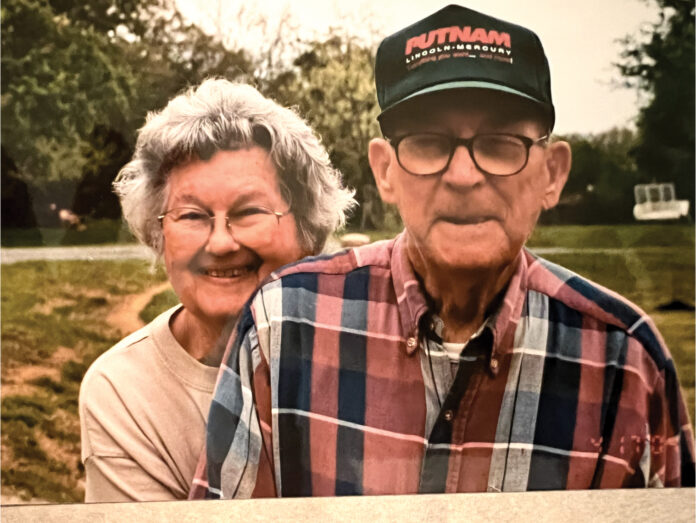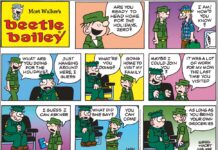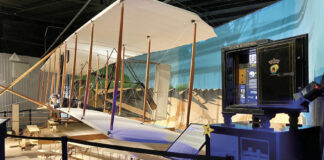Angeline Sivic, 99, is a part of World War II history, where she served as a Rosy Riveter working on airplanes in Wichita, Kansas.
Sivic, who turns 100 years old on April 14, was born on a small farm, seven miles north of Hartshorne.
After graduating from Hartshorne High School, Sivic, who resides in Iris Memory Care in Nichols Hills, followed a cousin to Wichita, who was already working at the Boeing airplane plant.
“I went up there and got a job, right out of school,” she said. “I liked it alright.”
Rosie the Riveter was the star of a campaign aimed at recruiting female workers for defense industries during World War II, and she became perhaps the most iconic image of working women.
American women entered the workforce in unprecedented numbers during the war, as widespread male enlistment left gaping holes in the industrial labor force. Between 1940 and 1945, the female percentage of the U.S. workforce increased from 27 percent to nearly 37 percent, and by 1945 nearly one out of every four married women worked outside the home.
While women during World War II worked in a variety of positions previously closed to them, the aviation industry saw the greatest increase in female workers.
More than 310,000 women worked in the U.S. aircraft industry in 1943, making up 65 percent of the industry’s total workforce (compared to just 1 percent in the pre-war years). The munitions industry also heavily recruited women workers, as illustrated by the U.S. government’s Rosie the Riveter persuasion campaign.
Based in small part on a real-life munitions worker, but primarily a fictitious character, the strong, bandanna-clad Rosie became one of the most successful recruitment tools in American history, and the most iconic image of working women in the World War II era.
Sivic married her husband John on Oct. 30, 1946, after he returned from the war. They had 4 children (3 girls, 1 boy), 6 grandchildren, 9 great-grandchildren, and 1 great-great grandchild.
Sivic laughed when she was asked what she felt about turning 100.
“I am getting old,” she said.
Jana Determan, Sivic’s daughter, said her mother grew up on the family farm and loved cooking and gardening.
“She enjoyed canning what food came from her farm,” Determan said.
Sivic said both her parents came to the United States from Europe and eventually settled on the family farm.
She said her father worked in the coal mines along with other family members.
“That’s what they did, coal mining,” Determan said. “What they did was underground.” Determan said growing up her family ate together at home.
“Every meal, we ate at home. We didn’t go out to eat. They didn’t go on vacation. They were just home on the farm, their whole life,” she said.
Determan said growing up on a farm developed her mother into a strong-willed and hard-working person.
“She was the strong-willed person in the family. She’s the one that pretty much ran it (life on the family farm),” she said.
Determan said she is proud of her mother’s work achievements as Rosie the Riveter during World War II.
“I think it’s the greatest generation (World War II military/civilian workforce) and there’s a reason for that,” she said. story by Van Mitchell















